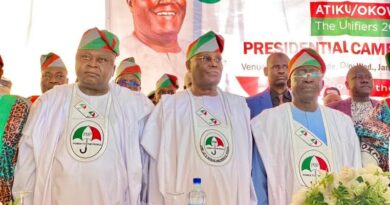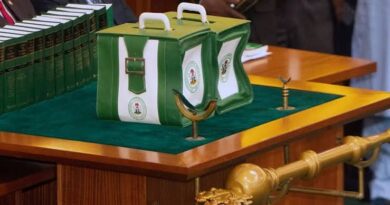Jega Backs Electronic Transmission of Results
Prof. Attahiru Jega, a former INEC chairman, has encouraged the election umpire to defy pressure from politicians opposed to implementing the Bimodal Voter Registration System (BVAS) for the 2023 elections.
Jega stated on Channels Television’s Politics Today on Wednesday that as election season approaches, politicians’ desperation intensifies.
“I think most important is the capacity of the election management body to resist that pressure, and having recognised that using technology will add more value to the election, they should just remain focused,” said the former Vice-Chancellor of Bayero University, Kano.
He urged INEC “not allow the parties to stop them from using the BVAS or the electronic transmission of results since they now have a legal backing”.
There have been recent claims that politicians opposed to BVAS are trying to use the legal system to prevent INEC from using the system in the elections next year. Still, the electoral body has repeatedly reaffirmed its commitment and intent to adopt the system for the general elections in 2023.
The Electoral Act of 2022 refers to the BVAS, a technological system that enables voter accreditation through biometric data collection and the uploading of results, among other things.
Many people have hailed it as an improvement over the smartcard reader used in the most recent general elections, which positively affected the nation’s voting system.
The Coalition of United Political Groups (CUPP), which represents Nigeria’s opposition political parties, claimed on Wednesday that there are purported schemes to prevent the electronic transmission of the election results for 2023 and disconnect the BVAS from the INEC server.
Commenting on CUPP’s claims, the former INEC boss said, “While I am not lending any credibility to what has been alleged, frankly, from my own experience, we saw how close to the election, some politicians became afraid that using the card reader was going to stop rigging the election using their methods, so they came out and at a point even started demanding publicly for me to either resign or go on what they called terminal leave so that I didn’t have to supervise the conduct of the 2015 general elections.”
The INEC chairman from June 2010 to June 2015 further said the National Assembly should ensure that INEC nominees have non-partisan dispositions.
Jega urged NASS to thoroughly interrogate allegations of partisanship before endorsing INEC Resident Electoral Commissioners.
“Certainly, in terms of the nomination both by the President and the screening by the Senate, it is very important to ensure that those who are screened are non-partisan.”




